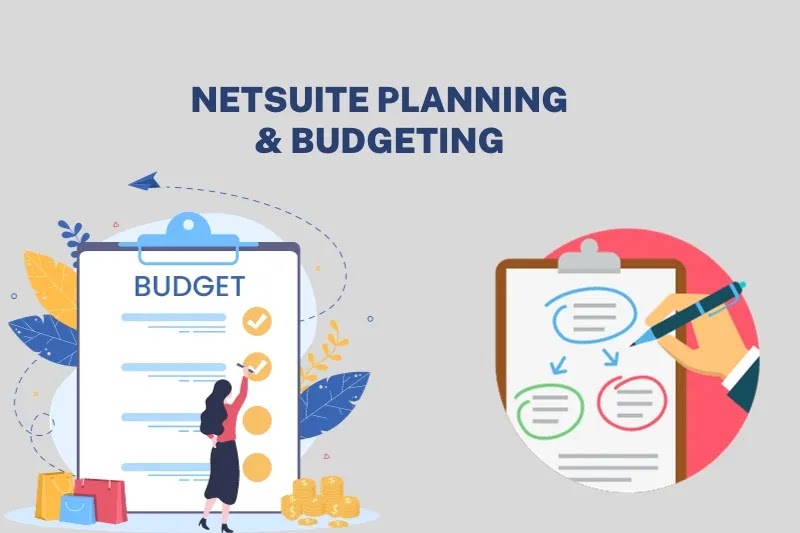Navigating the financial demands of college life can be challenging, but fear not. We’ve curated a collection of 48 straightforward yet effective money-saving tips for students.
These strategies will help you make your budget stretch further, ensuring you can enjoy your academic journey without constant financial stress.
Budgeting Made Easy
1.Create a Detailed Budget:
Start by crafting a comprehensive budget. List all your income sources, including scholarships, part-time job earnings, and any support from your parents or guardians.
Then, itemize your monthly expenses, covering everything from tuition fees to everyday necessities. A budget is your financial roadmap, keeping you on track.
2.Stick to Your Budget:
It’s not just about making a budget; it’s about following it diligently. Avoid impulsive spending and prioritize essential expenses. Discipline in budgeting is your key to financial stability.
Saving on Textbooks
3.Opt for Used Textbooks:
Textbooks can be one of the most significant expenses. Cut these costs by purchasing used or digital versions. Many websites and campus bookstores offer discounted options.
4.Consider Renting Textbooks:
Instead of purchasing textbooks outright, explore rental options. This can be considerably more budget-friendly.
Housing Hacks
5.Explore On-Campus Housing:
Living on campus can often be more cost-effective than opting for off-campus alternatives. This is because on-campus housing may include utilities, internet, and meal plans in the rent, reducing your overall monthly expenses.
6.Find Reliable Roommates:
Sharing accommodation costs with roommates is an excellent way to save money. However, it’s crucial to select trustworthy individuals as your roommates to ensure a harmonious living situation.
Smart Eating Habits
7.Cook at Home:
Eating out frequently can rapidly deplete your funds. Preparing your meals at home not only saves money but also encourages healthier eating habits.
8.Embrace Meal Prepping:
If you want to save both time and money, consider meal prepping. This involves cooking in batches and freezing portions for the week, reducing the need to dine out.
Affordable Transportation
9.Use Public Transportation:
Opt for public transportation instead of owning a car. This not only saves you money but also contributes to a more environmentally friendly lifestyle.
10.Bike or Walk:
If your campus is accessible by bicycle or walking, this can be a free and healthy mode of transportation. It helps you save money on fuel, parking, and maintenance.
Financial Aid Awareness
Apply for Scholarships: Don’t miss out on opportunities to secure scholarships. Many organizations and colleges offer financial assistance based on merit or need.
11.Complete the FAFSA:
Ensure you fill out the Free Application for Federal Student Aid (FAFSA). This form helps determine your eligibility for federal grants and loans, potentially reducing your financial burden.
Thrifty Shopping
Visit Thrift Stores: Thrift stores are treasure troves of affordable clothing and household items. You can find quality items at a fraction of the cost compared to buying brand new.
12.Maximize Student Discounts:
Take full advantage of student discounts at various retailers, both online and in physical stores. These discounts can lead to substantial savings over time.
Digital Deals
13.Utilize Student Software Discounts:
Many software companies offer discounts to students on their products, including popular ones like Microsoft Office and Adobe Creative Cloud.
14.Explore Educational Apps:
In the age of technology, numerous free or low-cost educational apps are available. They can serve as valuable supplementary resources for your studies, reducing the need for expensive textbooks.
Work-Study Programs
15.Participate in Work-Study:
If you’re eligible, consider a work-study program. These initiatives allow you to work part-time on campus, helping you earn money to support your education.
16.Freelance Opportunities:
Explore freelance job opportunities online. Whether it’s writing, graphic design, or coding, these gigs can provide extra income to bolster your financial situation.
Health Savings
17.Use Campus Health Services:
Most colleges provide affordable or even free health services for students. These resources are often more economical than seeking healthcare off-campus.
18.Health Insurance Options:
Investigate whether you can remain on your parents’ health insurance plan or explore affordable student health insurance options provided by your institution.
Budget-Friendly Entertainment
19.Attend Campus Events:
Participate in on-campus events and activities, which are often either free or budget-friendly. It’s a great way to enjoy your college experience without emptying your wallet.
20.Leverage Your Student ID:
Your student ID can open doors to discounts at local theaters, museums, and entertainment venues. Always keep it handy to access these savings.
Banking for Students
21.Select a Student-Friendly Bank:
Choose a bank that offers student accounts with minimal or zero fees. Look for options with convenient ATMs situated on or near your campus.
22.Establish an Emergency Fund:
Begin saving for unforeseen expenses by setting up an emergency fund. Even a modest contribution can provide peace of mind and financial security.
Internship Opportunities
23.Pursue Internships:
Internships offer not only valuable experience but sometimes also financial compensation. They can enhance your resume and your finances.
24.Paid Research Projects:
Investigate opportunities for paid research projects that align with your field of study. These projects can provide both valuable experience and financial support.
Online Learning Resources
25.Explore Open Educational Resources (OER):
OER platforms provide free textbooks, videos, and other materials that can complement your studies.
26.Consider Online Course Platforms:
Online courses can often be more affordable than traditional classroom settings. They offer flexibility and cost-effectiveness.
The Power of Public Libraries
27.Utilize Your Local Library:
Your local library is a goldmine of resources, from textbooks to leisure reading materials. The best part? It’s all free!
28.Unlock Interlibrary Loans:
Many libraries offer interlibrary loan services, allowing you to access books and resources from other institutions. This extends your access to knowledge without the need for costly purchases.
Part-Time Employment
29.Secure Part-Time Work:
Find part-time jobs that accommodate your class schedule. Many on-campus jobs are designed to work seamlessly with students’ academic commitments.
30.Embrace the Gig Economy:
Explore gig economy jobs, such as working for services like Uber, Lyft, or food delivery platforms. These jobs offer flexibility and quick earning potential.
Financial Literacy Workshops
31.Attend Financial Workshops:
Many colleges host financial literacy workshops. These workshops can help you manage your finances more effectively.
32.Leverage Personal Finance Apps:
Use personal finance apps to monitor your spending, set savings goals, and track your budget. These apps can be powerful tools for financial control.
Cutting Utility Costs
33.Conserve Energy:
Conscientiously manage your electricity and water consumption. Simple changes like turning off lights and unplugging devices can lead to significant savings over time.
34.Split Utility Bills:
If you reside off-campus with roommates, consider splitting utility bills. Sharing these costs makes them more manageable for everyone.
International Calling Solutions
35.Embrace Internet Calling:
Use internet calling services or apps to stay connected with family and friends abroad at a lower cost.
36.Investigate International Student Discounts:
Check if your university offers special discounts for international students on calling and data plans. These discounts can help international students keep their communication costs down.
Student Loans
37.Borrow Wisely:
If you need student loans, borrow only what is necessary. Explore federal loan options, which often come with lower interest rates compared to private loans.
38.Understand Loan Repayment Plans:
Research income-driven loan repayment plans, which can make your post-graduation loan payments more manageable.
Tax Benefits
39.Explore Education Tax Credits:
Look into tax credits like the American Opportunity Credit or Lifetime Learning Credit, which can reduce your tax liability.
40.File Your Taxes On Time:
Don’t forget to file your taxes promptly. Late submissions can lead to unnecessary fees and penalties.
Campus Transportation
41.Utilize Campus Shuttles:
Many colleges offer free or low-cost shuttle services that can help you get around campus and nearby areas conveniently.
42.Consider Bike Sharing Programs:
Investigate whether your campus offers bike-sharing programs. This is not only an environmentally friendly option but also a budget-friendly mode of transportation.
Grants for Research
43.Apply for Research Grants:
If you’re engaged in research, seek out grants that can provide funding for your projects.
44.Look for Conference Grants:
If you’re presenting your research at a conference, inquire about conference grants that can cover your travel expenses. This can be a significant relief for your budget.
Making the Most of Savings Accounts
45.Open a High-Yield Savings Account:
High-yield savings accounts typically offer higher interest rates. These accounts can help your savings grow more quickly.
46.Automate Savings:
Set up automatic transfers from your checking account to your savings account. This ensures consistent savings and keeps your budget on track.
Insurance Savings Strategies
46.Safe Driving Discounts:
If you have a car, maintain a safe driving record to qualify for auto insurance discounts.
47.Bundle Your Insurance:
Consider bundling your renter’s or auto insurance with your family’s policies. This bundling can lead to cost savings on insurance premiums.
Financial Counseling
48.Seek Financial Counseling:
If you encounter financial difficulties, don’t hesitate to reach out to your college’s financial counseling services. They can offer guidance and support tailored to your specific financial needs.
In summary, managing your finances as a student doesn’t have to be overwhelming. With these 48 money-saving tips, you have the tools to navigate your financial journey successfully. Every penny saved is a step towards a more secure and fulfilling academic experience. Implement these strategies and pave the way for a brighter financial future.
Also Read : Saving money for clothing ,Saving Formula,save $10000


